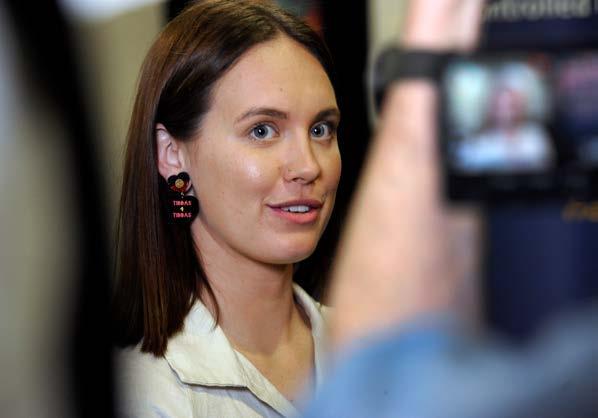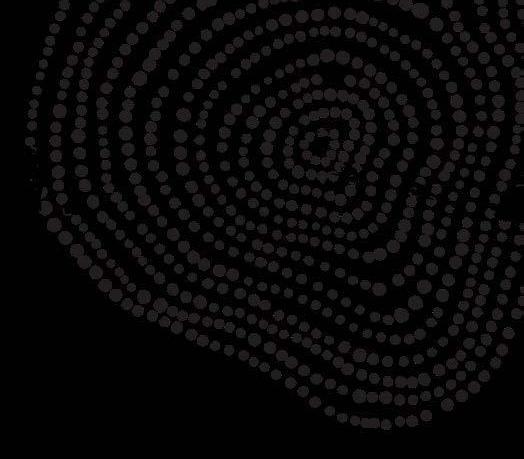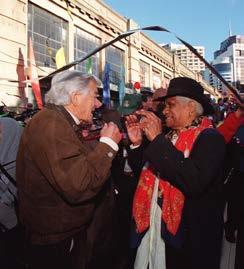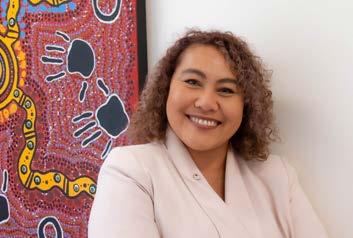
5 minute read
Book reviews
LOOK FOR A BOOK!
Tell Me Why: The Story of my Life and my Music by Archie Roach Simon & Schuster, 2019 This is the story of anyone who has been stolen from family, who has been searching all their life for their identity, their people, culture and Country.
Reading Archie Roach’s memoir is an experience much akin to listening to his music. Soaringly moving and deeply personal, this book almost seems to hum with Roach’s characteristic soft and humble resonance.
A few pages in and it becomes apparent that you’re in the presence of storytelling at its most authentic. A member of the Stolen Generations, Roach was taken from his family at the young age of two. Cycling through different foster families – and ultimately finding a home with one – his whole life and identity is thrown into turmoil when a letter arrives at age fifteen, telling him his truth. With raw honesty, Roach details the profound sense of displacement and despair that has followed him for much of his life, and oftentimes almost pulled him under. However, while he touches on alcoholism, homelessness, and suicide, Tell Me Why reveals ultimately it is the healing power of music that stays with you long after reading.
Roach’s music has had a profound effect on Australia because of the categorical truth written into its every line. For many people this truth was their first introduction to the existence and effects of the Stolen Generations. Just like his music, Tell Me Why rings with truth, and likewise there is still so much for us to learn from his remarkable life. It shouldn’t be surprising to anyone that one of Australia’s greatest songwriters is also one of our greatest storytellers.
Sandtalk: How Indigenous Thinking Can Save the World by Tyson Yunkaporta Text Publishing, 2019 I’m not reporting on Indigenous Knowledge systems for a global audience’s perspective. I’m examining global systems from an Indigenous Knowledge perspective.


Sandtalk is a book that reverberates through you for weeks after reading. One almost hesitates to call it a book. Rather, I found it more of a force that disembowels the mind like shucking the entire contents of a watermelon onto the ground from a great height. In the best way possible, of course.
The premise of Sandtalk is deceptively straightforward: let’s look at solving complex problems with Aboriginal and Torres Strait Islander systems of knowledge. The execution, however, throws the reader into a multi-sensory deep-dive where the things you thought, and the thoughts about the things you thought, all get smashed together into mind-stew. It’s exhilarating. It’s philosophy in a way you’ve never philosophised before. It’s an electric current that sometimes quietly – more often shockingly – fries all the components on the circuit board of your brain.
Brain-frying may be rather overwhelming for most, except Yunkaporta uses gloriously perfect symbols throughout the book that, designed after drawings etched in sand, bring everything together. And no doubt to flit across your eyelids before sleep, letting your mind quietly turn the book over and over.
In a world where the myriad of Aboriginal and Torres Strait Islander systems of knowledge have either been purposely eradicated, ignored, misunderstood, stereotyped or wholesale appropriated, Sandtalk is an undeserved gift and a remarkable invitation. Buy it; read it; try explain it to your friends; fail miserably. Ultimately, insist they read it as well – if only to have someone else kept awake by drawings etched in sand too.
Jack Charles: Born Again Blackfella by Jack Charles, with Namila Benson Penguin Books Australia, 2019 Born Again Blackfella is the story of one, talented, wise and resilient actor, musician, potter, elder, and mentor, Uncle Jack Charles. However by the time you put the book down you’ll feel like you’ve read of the exhausting lives of multiple people. More than just the memoir of this Boon Wurrung, Dja Dja Wurrung, Woiwurrung and Yorta Yorta and Wiradjuri man, it’s also an instructive march through recent Victorian cultural, political, and social history.
Born at Cummeragunja mission, taken from his mother as a baby, raised in a brutal and abusive institution in Melbourne, isolated from culture and family, it’s a sadly familiar story. Jack Charles is eventually released to a foster family and finds his way in the outside world as an apprentice at a glass bevelling factory.
The blokes at work suggest he might uncover family at Fitzroy and he does just that, finding himself in a ‘sea of black faces’ – many of whom are family – at the Builders Arms pub.
Later that night, returning home with great glee and joy to inform his foster mother, he is taken by police to juvenile detention for leaving his foster home without permission.
It’s his first of 22 stays in jail.
The story of this indefatigable addict, homosexual, cat burglar, actor. Aboriginal (to steal the tagline from the 2008 Bastardy documentary) is huge, heartbreaking, and hilarious. We are lucky he has lived in our times.
Truganini: Journey through the Apocalypse by Cassandra Pybus Allen & Unwin, 2020 It’s 1829 and on Lunawanna Alonnah (Bruny Island) off the coast of Van Diemen’s land, missionary/mercenary George Augustus Robinson is about to set off to round up Tasmanian Aboriginal people and exile them to reserves on the Bass Strait islands. Truganini, a local Nueonne woman joins him on this mission. She sees it as a preferable option to living with the death, disease and violence passing for life on her country. She and her countrymen are Robinson’s guides, cultural interpreters, and indeed life savers for the next 13 years but Truganini is his constant. It’s through Robinson’s journals that historian, Cassanra Pybus frames Truganini’s story, the story of a hugely significant figure in Australian history, not its helpless tragic victim as she is mostly portrayed. This strong woman of intelligence, agency, skill, and culture navigates her way around country in an exhausting, relentless journey. They undertake their task as quasi native police with more or less enthusiasm, much to Robinson’s narcissistic frustration. Her story takes you right through the Tasmanian apocalypse and beyond. Think you know your history of Tasmania and Victoria? This exceptional and detailed telling will add another dimension. Think you’re still trying to understand what ‘apocalypse’ might mean in an Australian setting? Here’s one definition you’ll never forget.

Books as a starting-point for reconciliation: On World Book Day (5 March), we asked our social media community to tell us about a book that had changed the way they thought about reconciliation. Here are their recommendations: • Finding the Heart of the Nation, by Thomas Mayor • Why weren’t we told, by Henry Reynolds • Song Spirals – Sharing women’s wisdom of Country through Songlines, by Gay’wu Group of Women. • The Yield – by Tara June Winch










